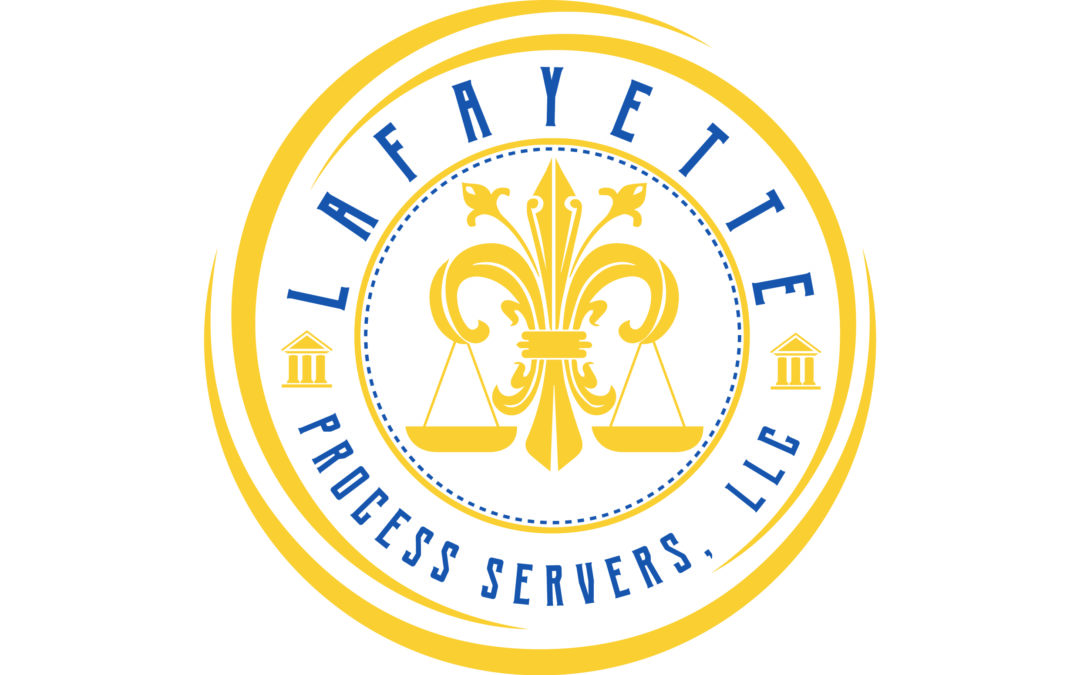Navigating the legal system can be daunting, especially when faced with unfamiliar roles like that of a process server.
Process servers play a crucial role in the justice system in Louisiana, from Prairieville to Baton Rouge and Gonzales to Denham Springs. They deliver legal documents to individuals involved in court proceedings, ensuring due process of law.
But how can you be sure that the person standing at your door is a legitimate process server?
In this article, we’ll explain the key identifiers of a professional process server and how to protect yourself from potential scams.
Understanding the Role of a Process Server
A process server’s primary role is to deliver or “serve” legal documents to a defendant or person involved in a court case.
In Louisiana, these professionals are an integral part of the legal system, ensuring that the due process of law is upheld.
Their work ensures that everyone has the right to know if legal action is being taken against them.
Identifying a Legitimate Process Server in Louisiana
In Louisiana, legitimate process servers must be licensed.
This ensures they are trained and knowledgeable about the laws and procedures of the serving process.
They should also be able to provide proof of their credentials upon request.
You can verify their license with the Louisiana Process Server Association if in doubt.
Verification of Credentials
A professional process server should willingly provide their license number.
You can then cross-check this with the state’s database of licensed process servers.
Professional Conduct and Identification
Legitimate process servers will typically carry an identification badge and official paperwork.
They should also conduct themselves professionally, respecting your rights and privacy.
Red Flags: Spotting a Fake Process Server
While most process servers are legitimate, scams do occur.
Knowing the red flags can help protect you from fraudulent individuals.
These signs may include unusual requests for payment, lack of proper identification, or aggressive behavior.
Always trust your instincts and verify any doubts.
Unusual Requests for Payment
Legitimate process servers don’t typically request payment for delivering documents.
If someone asks for money, it’s a clear red flag.
Lack of Proper Identification
A process server should always have proper identification.
If they can’t or won’t provide it, be cautious.
Aggressive or Unprofessional Behavior
Professional process servers should never resort to intimidation or harassment.
It’s likely not a legitimate process server if you encounter such behavior.
Steps to Take When Approached by a Process Server
When approached by a process server, it’s crucial to stay calm.
Remember, they are just doing their job.
However, you should take specific steps to ensure their legitimacy.
Requesting Identification and Documentation
Firstly, ask for identification.
A legitimate process server will have no issue providing this.
Verifying with Local Authorities
Next, verify their credentials with local authorities.
This can provide peace of mind and confirm their legitimacy.
The Importance of Responding to a Legitimate Process Server
Ignoring or avoiding a legitimate process server can lead to complications.
If you fail to respond, the court case can proceed without your input.
Therefore, engaging with a verified process server is crucial to protect your legal rights.
Conclusion: Protecting Yourself and Your Legal Rights
Understanding the role and legitimacy of a process server is vital.
Following the steps outlined, you can ensure your rights are protected and the legal process is upheld in Prairieville, Port Allen, Baton Rouge, Denham Springs, Gonzales, and throughout Louisiana.
What kind of papers does a process server serve

